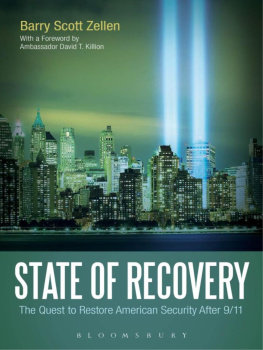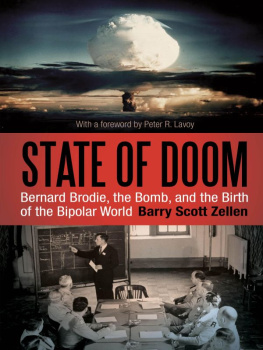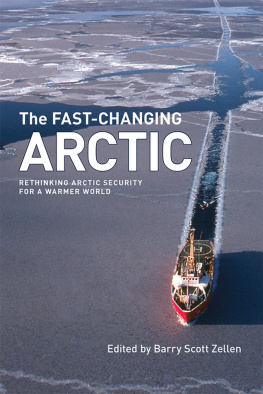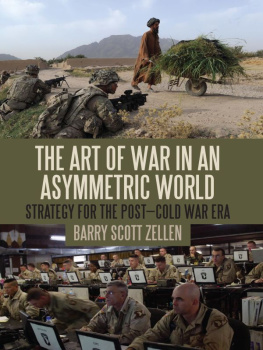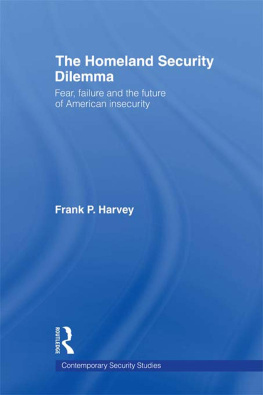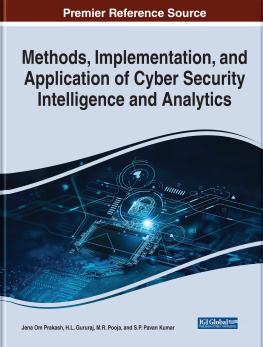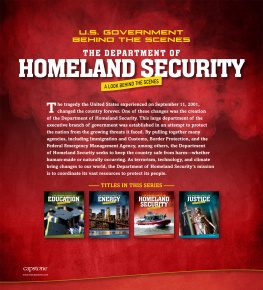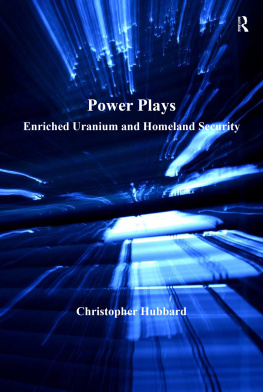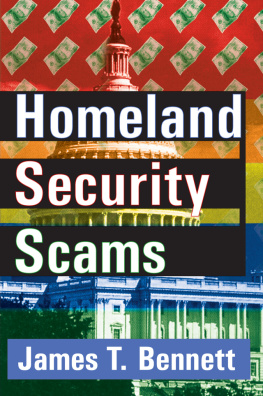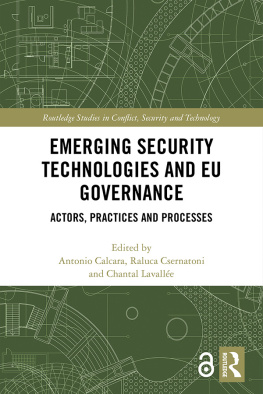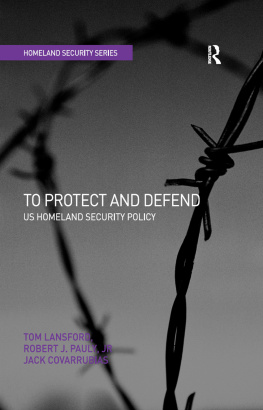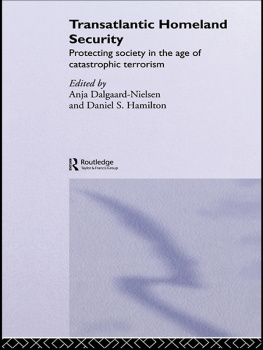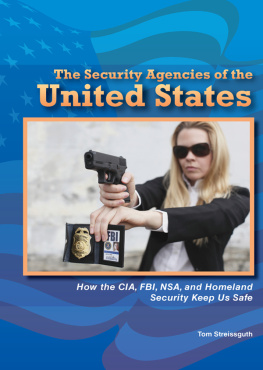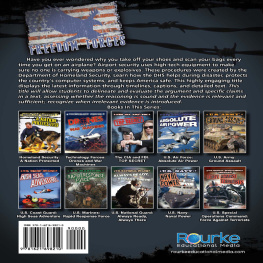Innovation Leads the Way: From Long War to Longer Peace
When mass terror came to Americas shores over a decade ago, it came at a widely unexpected time for America. The digital revolution was in full force, connecting America in new ways and at an unprecedented pace, with both wired and wireless networks proliferating across the American heartland, unlocking a tremendous surge in innovation, transformation, and creativity. It was thus no surprise then that technology would play a huge role in the coming struggle, and Americas technological prowess and unmatched capacity for innovation would, as it had during the Cold War, provide us with what technology professionals call our competitive edge in the long and complicated war that followed.
It was thus with much anticipation that I first read Barry Scott Zellens newest book State of Recovery, a chronicle of the often unsung but nonetheless vital role played by thousands of Americas technology and policy professionals in the effort to restore American security after 9/11.
Zellen once again delivers right on the mark, providing us with a fascinating glimpse at what he rightly describes as our generations equivalent of the greatest generations Manhattan Project that would, through unprecedented (and to most, unfathomable) gains in scientific knowledge early in the twentieth century, usher America forth into the nuclear age. While less secretive than that infamous project, and perhaps more tactical in natureit involved a host of technical and policy innovations as both government and private industry came together to address the threat of international terrorismthe massive recovery effort that restored both security and hope to a wounded America would involve millions of Americans, all united in their effort to reestablish homeland security, and protect America from future 9/11s. The story is a fascinating one, with a huge cast of characters large and smalland it is well told by Zellen.
Zellen is a prolific author whose works cover the Cold War, the postCold War period, and the post-9/11 era, and State of Recovery is his tenth book to date. He is also a theorist of world order and founder of a new school of international relations theory known as constructive realism, which challenges the dominant theory during the Cold War period called neorealism or structural realism as developed by Kenneth Waltz. In contrast to Waltzs over-emphasis of systems and structures and the restraint they presumably automatically impose on international behavior, Zellen argues persuasively that the individual has beenand remainsthe most essential level of analysis of them all, and is thus the key driver of international behavior, resulting in a more volatile, and passionate, unfolding of historical events. This is because of the undiminished (if not always acknowledged) role in world history of the individuals creativity and passion for change.
Zellen is also a journalist and editor specializing in strategy and national security, and he draws upon these skills here to tell this story in a manner that is refreshingly free of jargon and overly academic language; this ensures his newest work is accessible not just to theorists and experts but the layperson as wella welcome departure for Zellen whose recent works have tended to be high theory. State of Recovery requires both the instincts and clarity of a journalist to capture the mood that followed 9/11 when hope suddenly gave way to fearand to chronicle how technology emerged as one of the few bright lights that would not only restore hope across America but security as well. The critical role that technology has played in the long struggle against terrorism is a fascinating story to behold, one that continues to evolve under the present administration. Indeed, technology remains an important element of not only our struggle against terror, but in helping to foster democracy and civil society around the world as we build a new foundation for peace.
As the United States ambassador and permanent representative to the United Nations Education, Social and Cultural Organization (UNESCO), I work every day with some of the Americas most creative and innovative minds, in fields as diverse as the arts, scientific research, and information technology, among others. From its inception, UNESCO has worked hand-in-hand with civil society to effect change and promote peace. UNESCO helps legitimize and strengthen global civil society by engaging scientists, teachers, architects, and engineers in UNESCO planning and its field work. Indeed, the US mission to UNESCO includes a National Committee made up of over 100 members of civil society, representing groups such the US Chamber of Commerce, the National Marine Sanctuary Foundation, the Institute for International Education, the Library of Congress, and NGOs to help guide us on critical issues. They are our panel of experts from some of the most influential institutions around the world, and serve as a resource and an essential ear to the ground.
A key area where UNESCO has been active is science. Science diplomacy may sound odd to some, but it is a highly effective way to promote cooperation and technological advancements worldwide. Our nations top scientists and engineers have a forum through UNESCO that helps them forge connections with colleagues around the world in support of projects to improve access to clean water for billions of people, monitor and predict changes in the worlds oceans and waterways, and protect countries by developing better, faster tsunami warning and mitigation systems. The teamwork on this level never ceases to amaze me.
UNESCO is also directly involved in building scientific knowledge and fostering innovation capacity around the world, especially in developing countries. For example, UNESCO is currently assisting the Iraq government in drafting and implementing a science and technology policy, and has recently launched a program with Nature Publishing Group to create free, high-quality, online education resources in the life and physical sciences for secondary and university level students around the world. Or, consider one of UNESCOs newest public-private partnershipswith Apples iTunes University. It is only fitting that UNESCO and Apple came together, as both institutions share a deep and abiding commitment to and belief in the values of both education and innovation, even if they approach it from different perspectives: UNESCO focuses on helping countries adopt the effective policies and practices to educate their populations, while Apple, as a private sector institution, works to advance teaching and learning through innovative improvements in technology. Especially in this day and age, as our world becomes ever more globalized and interconnected, we think there is great value in bringing together and sharing the expertise of both the public and private sectors to foster innovation and learning, and making education more accessible by adapting it to the changing world. This particular partnership does just that, making the research and learning that UNESCO has helped develop accessible to a much wider audience. At the same time, it will help Apple continue to develop and expand its amazing tooliTunes Universityby linking it to UNESCO, a respected United Nations agency recognized around the world for its work in education, science, culture, and communication.
UNESCO is perhaps the most visible, nonpartisan forum and partner for us to reinforce our commitment not only to multilateral diplomacy but also other very tangible, salient issues such as scientific research and development, and freedom of inquiry and expressioncornerstones of innovation. Im very proud of the role the United States plays in helping make that happen, and delighted by the dynamic work taking place at UNESCO intersecting technology and education.

